How young immigrant ‘Dreamers’ made flipping control of the House a personal quest
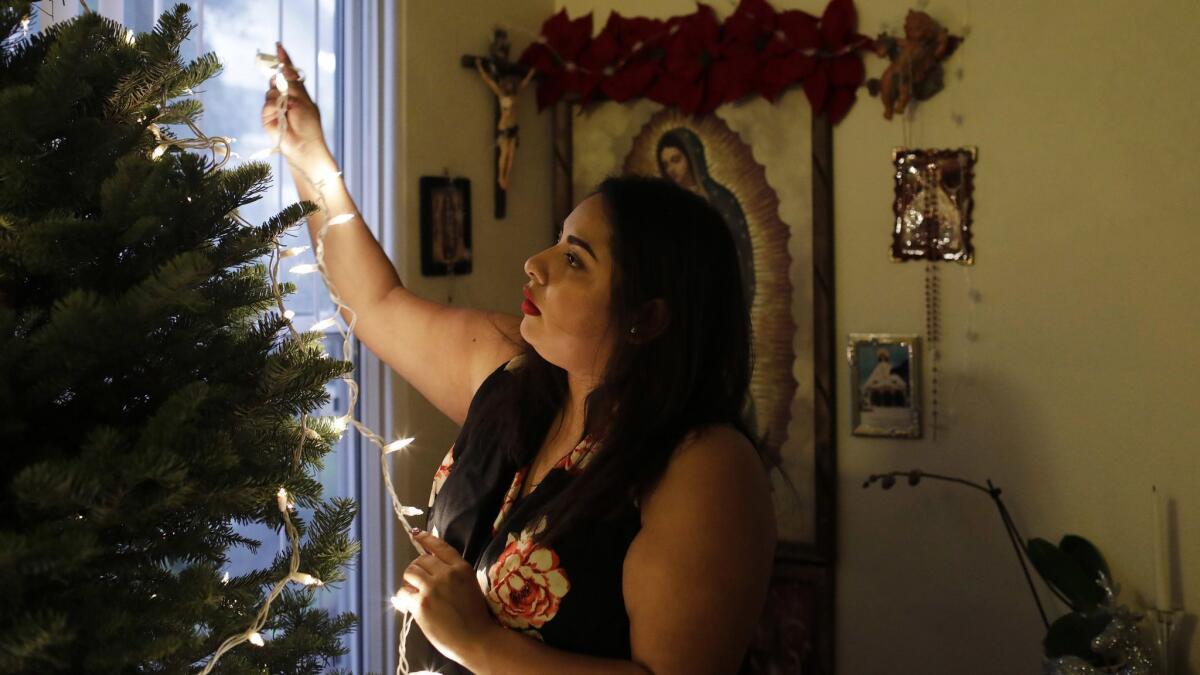
- Share via
Reporting from Modesto — Gabriela Cruz, who was brought to the U.S. illegally when she was 1, couldn’t vote, but in the final hours before the Nov. 6 election, she was making one last run to get people to the polls.
The sun was setting in Modesto when she found Ronald Silva, 41, smoking a cigarette on a tattered old couch behind a group home. He politely tried to wave her off until she reminded him he had a right that she as an immigrant without citizenship didn’t have.
“It could really make a change for us,” said Cruz, 29.
Half an hour later, she was helping Silva look up candidates as he filled out his ballot by the light of her phone. “I’m glad you guys came,” he said. “I was going to leave it in my drawer.”
Young immigrants, known as “Dreamers,” have become a political force over the last two decades as they have pushed Congress to overhaul the nation’s immigration laws. Part of a new wave of immigrant activists who mobilized this year to return control of the House to Democrats, Cruz and others in the movement see in President Trump an existential threat to their futures, and to their friends and family.
Less than a year ago, Cruz had a steady job at a mortgage bank, with health benefits and a retirement plan. She wanted to go back to college and dreamed of buying her own house.
But when Trump instituted a travel ban, tightened immigration enforcement and tried to end a program that granted temporary protections for young people brought into the country illegally as children, she grew tired of sitting helplessly at her desk and quit to become an activist.
“I realized I needed to share my story with as many people as possible,” she said. “We shouldn’t be living in a world of fear because we are undocumented.”
In California, Dreamers like Cruz phoned voters, walked precincts and protested outside Republican lawmakers’ offices, reaching people who had not been called or visited by either party. Their efforts helped boost turnout among Latinos in this year’s midterm election — 29 million nationwide were eligible to vote, according to the Pew Research Center — which is projected to surpass levels higher than in past presidential election years, political analysts said.
An analysis of data from eight states by the Latino Policy and Politics Initiative at UCLA found the Latino vote grew by an estimated 96% from 2014 to 2018, compared with 37% among non-Latinos. The surge, researchers said, helped move 20 House districts held by Republicans to Democratic control in California, Arizona, Nevada, Texas, New Mexico, Florida, New Jersey and New York.
In another study, the political research firm Latino Decisions found that an increase in Latino voter turnout contributed to flipping six GOP-held congressional seats in California — four in the once conservative bastion of Orange County and two in the Central Valley that have long eluded Democrats.
The results “spoke to the power within the Latino community,” said Adrian Pantoja, a senior analyst with Latino Decisions and a professor of politics at Pitzer College.
“Latinos were talking to each other, and there’s no doubt that Dreamers were instrumental to the effort,” he said.
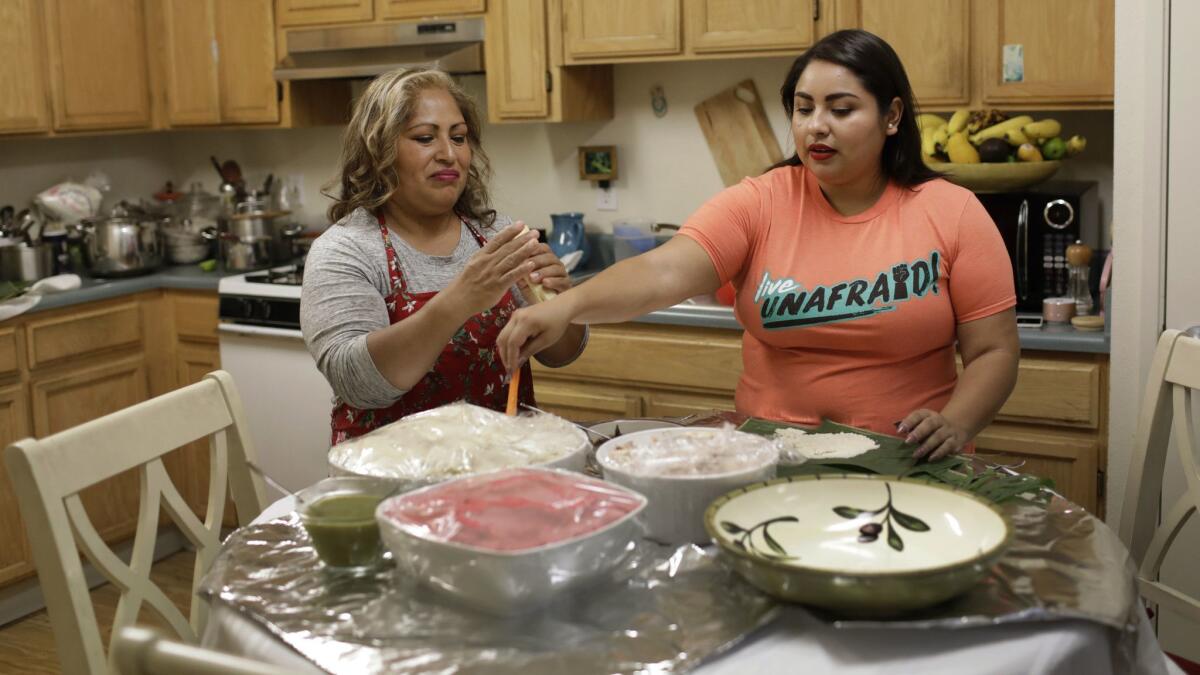
It was Cruz’s grandmother who brought her family to California nearly 30 years ago. Manuela Cruz made her way to Santa Cruz from the Mexican state of Oaxaca in search of one of her sons, a surfer who, after a stint in prison, became a youth mentor in the city nestled on the cliffs of Monterey Bay.
Gabriela Cruz was only a baby when her mother, then 21 and pregnant with her sister, carried her across the border illegally to join them. They arrived in Beach Flats, at the time an immigrant neighborhood not yet crowded with condos, where Gabriela learned English and played with her little sisters near the wharf and an old amusement park.
Her grandmother sold plates of food from her home and her mother, Irma Cruz, packaged dried pineapples and became a cook at a cafe. They kept their immigration status a secret, wrestling with it each time Gabriela asked to go to Disneyland or needed to see a doctor.
“I didn’t want to tell [Gabriela] and affect the person she could become,” Irma Cruz said.
By eighth grade, there was no avoiding it. Gabriela begged to go on a class trip to Washington, D.C. She wanted to see the nation’s capital and wander through the halls of power. But her mother objected, making excuses.
Airplanes are dangerous. There’s too much crime in the city.
And finally: “You weren’t born here.”
Gabriela struggled to bury her resentment.
The subtle differences she detected in how she had been treated suddenly made sense, she said. She didn’t have a regular dentist like her sisters. Her mother always seemed to make more rules for her. And her future seemed limited: She wouldn’t be able to go to college or get a driver’s license, much less find a job.
“I felt like when I was in school, I could pretend to be like everybody else,” Cruz said. “But as soon as I became an adult, it was going to be even more apparent that I did not have citizenship.”
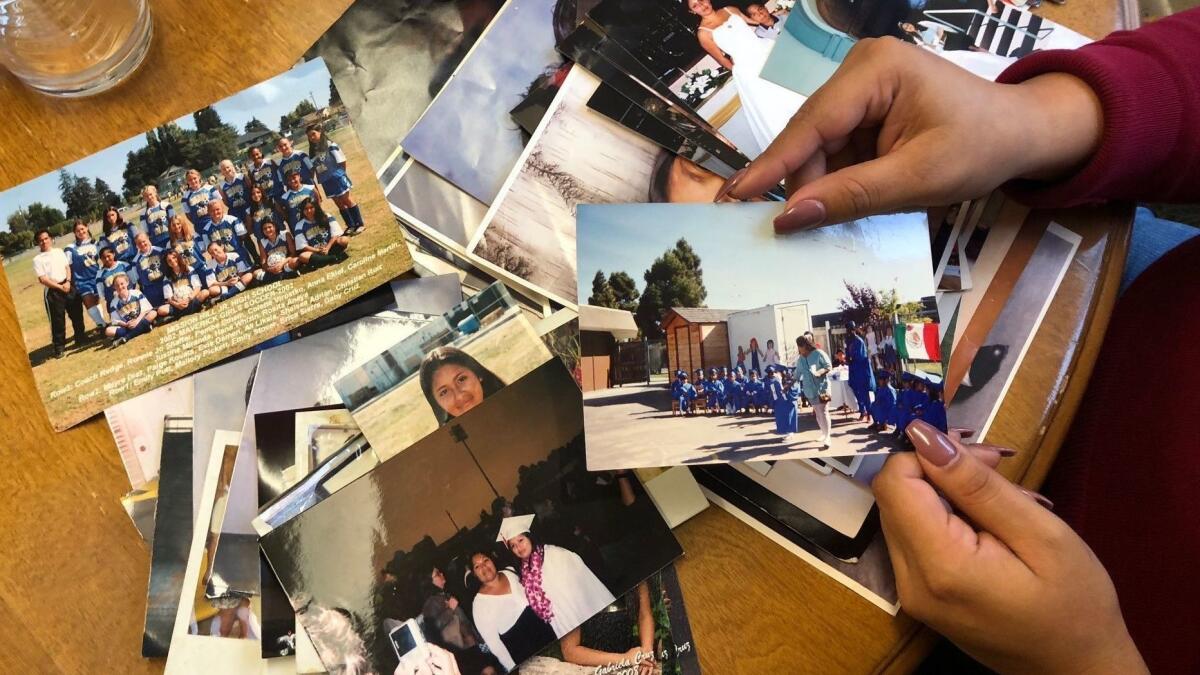
More than 16 years ago, Rep. Lucille Roybal-Allard (D-Downey) helped introduce legislation to pave a path to citizenship for thousands of immigrants who, like Cruz, were brought into the country illegally as children. Young immigrant activists have been fighting for what became the Dream Act ever since, even as the federal proposal and broader immigration reform failed four times in Congress, starting in 2007.
Their plight has resonated in California, where some state leaders fought against 1994’s Proposition 187, which sought to cut off schooling and health services for immigrants here illegally. Under Gov. Jerry Brown, the state became the first to approve its own version of the Dream Act in 2011, and now provides financial aid and in-state tuition for students without legal status.
The Deferred Action for Childhood Arrivals program, or DACA, an Obama-era effort, came a year later and provided protections to some 800,000 young immigrants in the U.S. illegally — roughly a quarter of whom lived in California — if they didn’t have a criminal record and worked or went to school.
While other young immigrants organized, Cruz was afraid to speak to anyone about her status. But the seeds of her political education were quietly being planted, she said. The state’s efforts helped her afford college, and six years ago DACA enabled her to quit two jobs waiting tables to work at a credit union. After a painful divorce from her high school boyfriend, she treasured the independence, she said.
But Irma Cruz was initially nervous for her daughter. Would DACA truly protect her?
Gabriela Cruz compiled her application against her mother’s advice, stuffing a manila folder with school transcripts, photos and addresses, evidence of a life almost entirely lived in the United States.
“‘Right now, you basically don’t exist in this country,’” Cruz recalls her mother warning. “‘You’re going to expose yourself to the U.S. government and you don’t know how this information can be used against you.’”
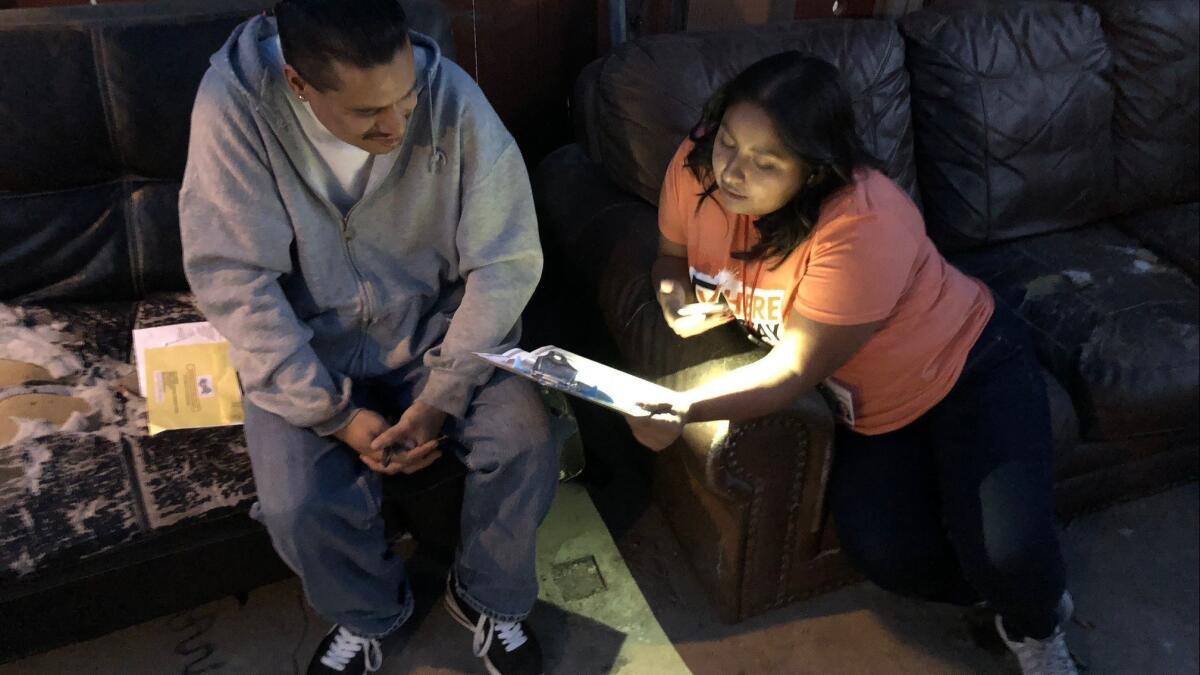
After Trump was elected on promises to increase deportations and build a wall on the U.S.-Mexico border, Cruz worried her mother’s worst fears might materialize. So she took her dream vacation to Maui with a boyfriend — her first time on a plane — not knowing her fate in the country or whether she would get to travel again. Trump rescinded DACA months later.
That day, her eyes swollen from crying, she walked to a protest a few blocks from the Santa Cruz bank where she worked. Cruz said she felt stares as she crossed the street, and realized she might be the only Dreamer in the crowd of roughly 40 people. Someone handed her a microphone.
She didn’t want to speak, but she thought the least she could do was thank the group for making her feel loved, she said.
“I told them, ‘I am not a bad person, I had no say in coming here,’” she said.
It was the first time she shared her story aloud. But she still felt alone.
So she called United We Dream, a Washington-based immigrant rights organization founded by Dreamers, to start her own local group. Soon after, she quit her job and made her way to Republican members’ offices after Congress again failed to pass the Dream Act. Over the summer, she and other activists traveled to Texas, where she said she saw herself in the migrant children who were bused into a tent city in Tornillo. There, federal immigration officials were separating migrant families at the border.
And as the midterm election neared, she was among 7,000 Dreamers who made calls, texted and knocked on doors to reach voters in California, New Mexico, Texas and Florida. The effort was the first by United We Dream to target congressional races, but volunteers said they were able to tap into a network of elected officials and activists who had come of age and risen through previous immigrant rights movements.
Perhaps nowhere was that network more established than in California, where Democratic state leaders introduced measures to oppose Trump administration policies and Atty. Gen. Xavier Becerra, himself the son of immigrants, led a lawsuit against the federal government over the termination of DACA that temporarily allowed the program to continue.
Yet even in a state billed as a counterweight to Trump, Cruz said she experienced hate. At a demonstration outside the Modesto office of Republican Rep. Jeff Denham, a handful of counter-protesters shouted racial slurs, she said.
Three weeks before election day, she returned to the city, where by then Denham and Democrat Josh Harder were locked in one of the most closely contested races in the state. In a district with historically low Latino turnout, the Turlock congressman had pledged support for the Dream Act and angered his party’s leadership in an unsuccessful attempt to salvage some form of DACA.
But Cruz urged residents to oppose him, pointing to his votes to expand the border wall, make significant cuts to legal immigration and penalize so-called sanctuary cities, which limit collaboration with federal immigration agencies.
In Modesto days before the election, she told voters, “Jeff Denham has had eight years to do something in our favor, and he has done nothing but rubber-stamp things.”
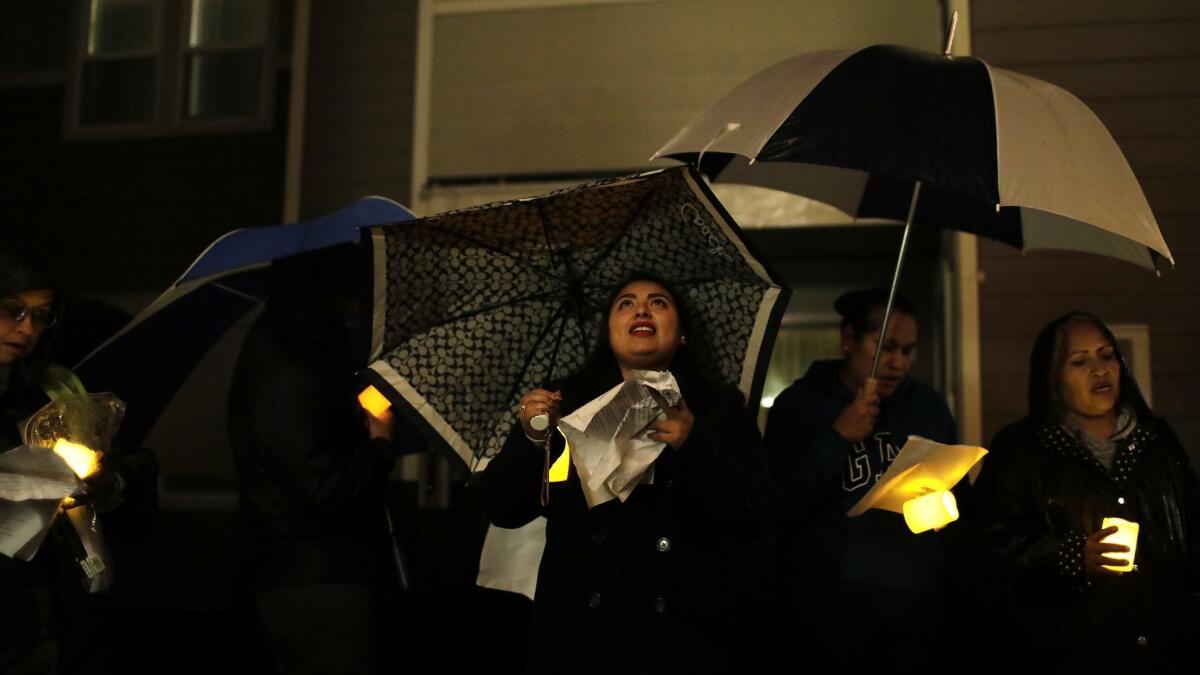
Pollsters and political analysts attribute the midterm victories to a variety of reasons: efficient organizing, a rejection of Trump and concerns over taxes and healthcare. Republicans have criticized groups such as United We Dream for sending volunteers into districts where they don’t live and targeting moderates. But young immigrants activists see the victories as proof that Americans are weary of anti-immigrant rhetoric.
“People would say, ‘You’re going after Jeff Denham — but he is a good bridge between both sides of the aisle on this issue,’” United We Dream campaign manager Adrian Reyna said. “And we said, ‘Great, show me the receipt.’”
As the conversation turns to sustaining momentum through the next presidential election, hundreds of thousands of young people like Cruz remain in deportation limbo. For many, DACA protections are set to expire by 2020 if Congress does not pass a more permanent solution. For countless others, they’ve already expired. Some never had the chance to apply at all.
Irma Cruz says she is proud of her daughter for all she has accomplished, but the two still debate about how much Gabriela is putting herself out there. Some friends praise her. Others wish she would keep quiet.
She hopes to remain an activist, is looking for work with an immigrant rights’ organization and plans to help campaign again in 2020.
“Someone fought for me when I didn’t know they were fighting for me,” she said.
Last month, with help from other activists, she revived the Santa Cruz posadas, a series of processions retracing Mary and Joseph’s biblical search for lodging in Bethlehem. As rain poured down, Cruz and others held candles as they walked and sang door to door. The holiday tradition had once been organized by her grandmother, started when she came looking for her son all those years ago.
More stories from Jazmine Ulloa »
More to Read
Get the L.A. Times Politics newsletter
Deeply reported insights into legislation, politics and policy from Sacramento, Washington and beyond. In your inbox twice per week.
You may occasionally receive promotional content from the Los Angeles Times.











